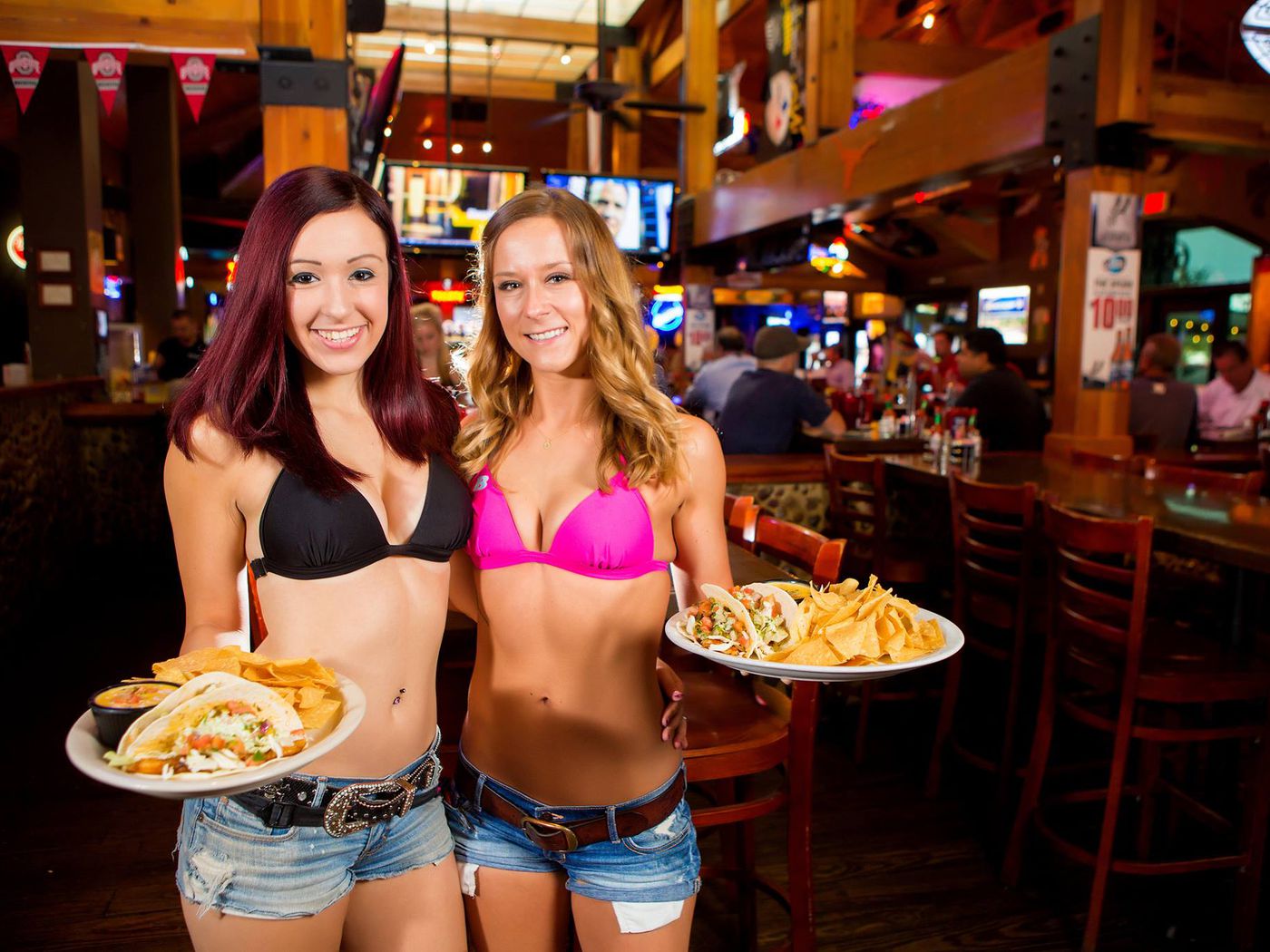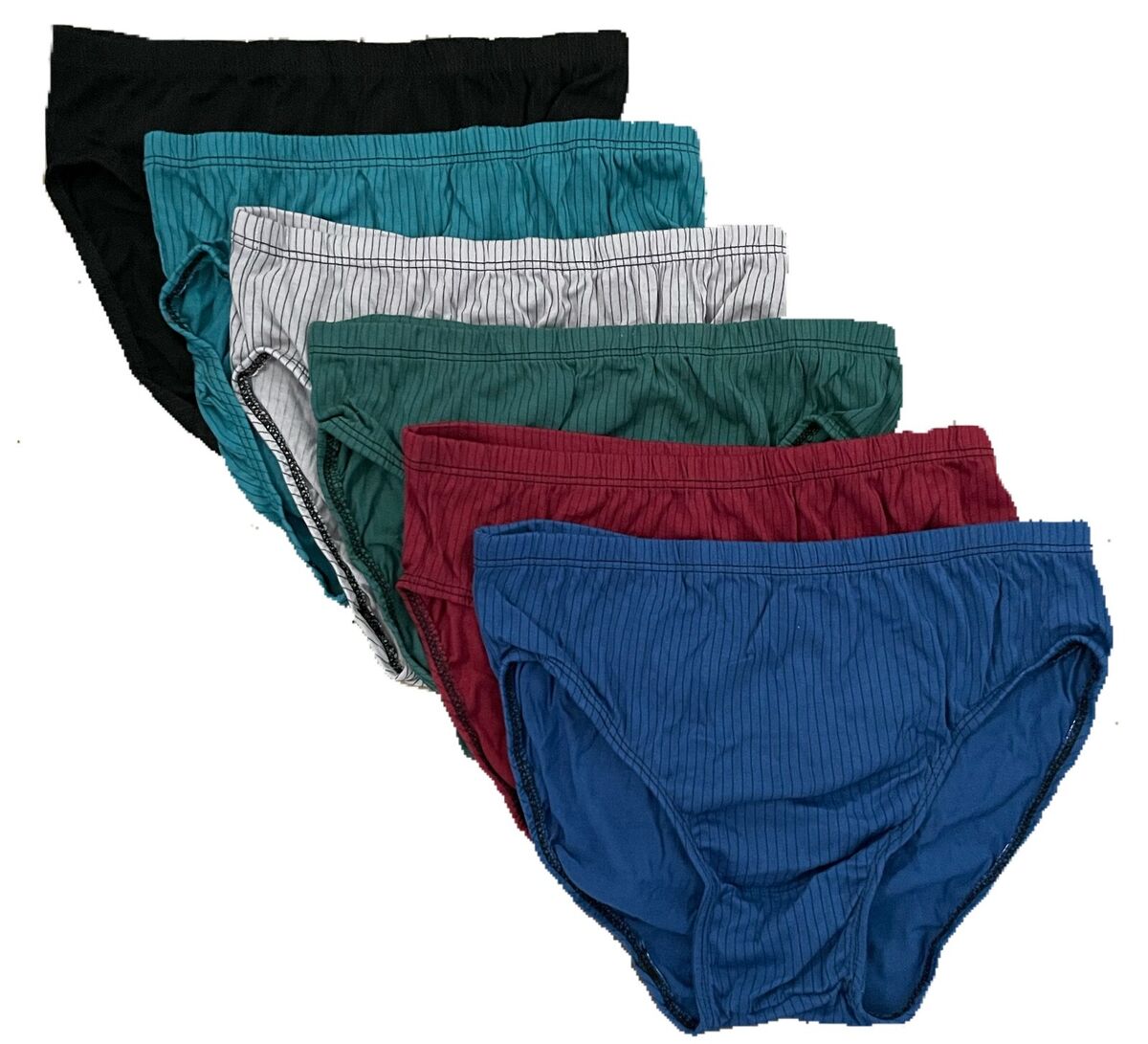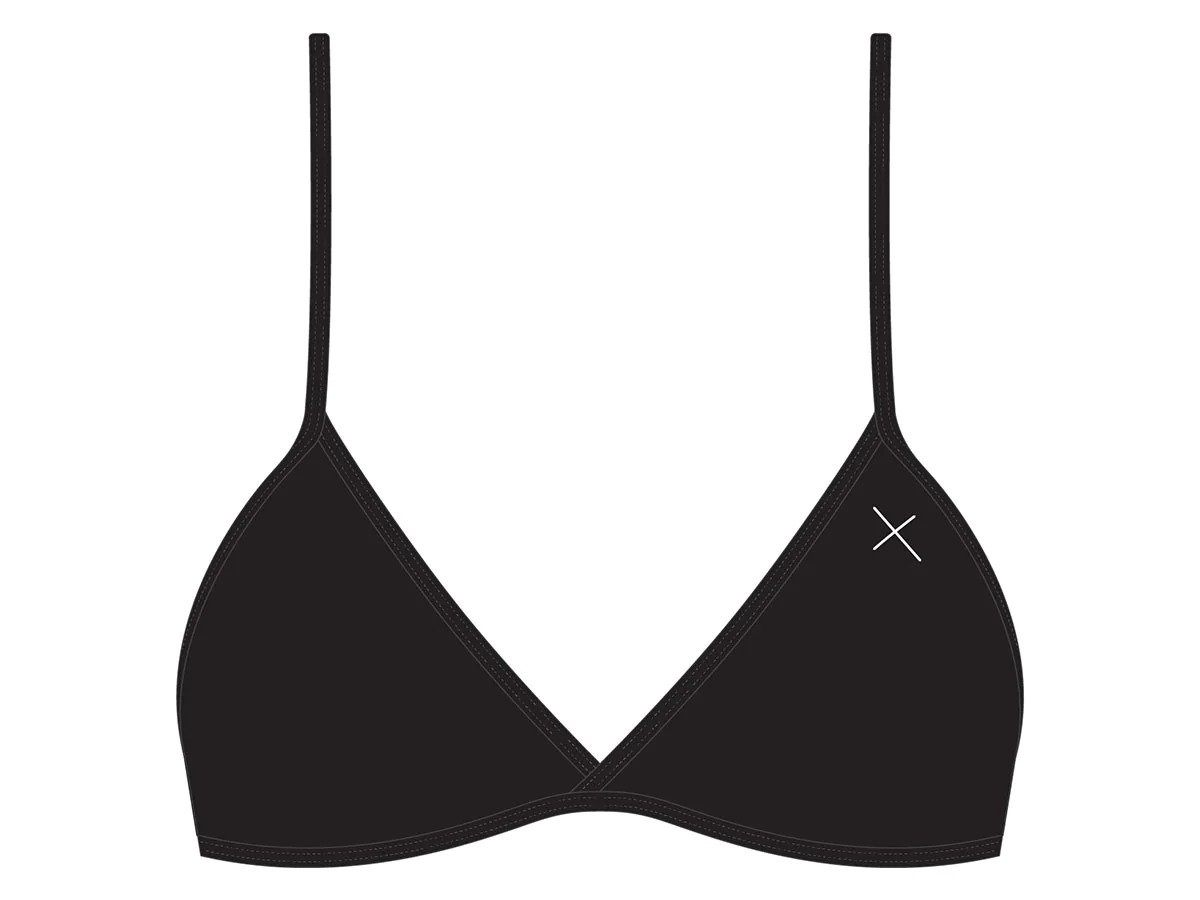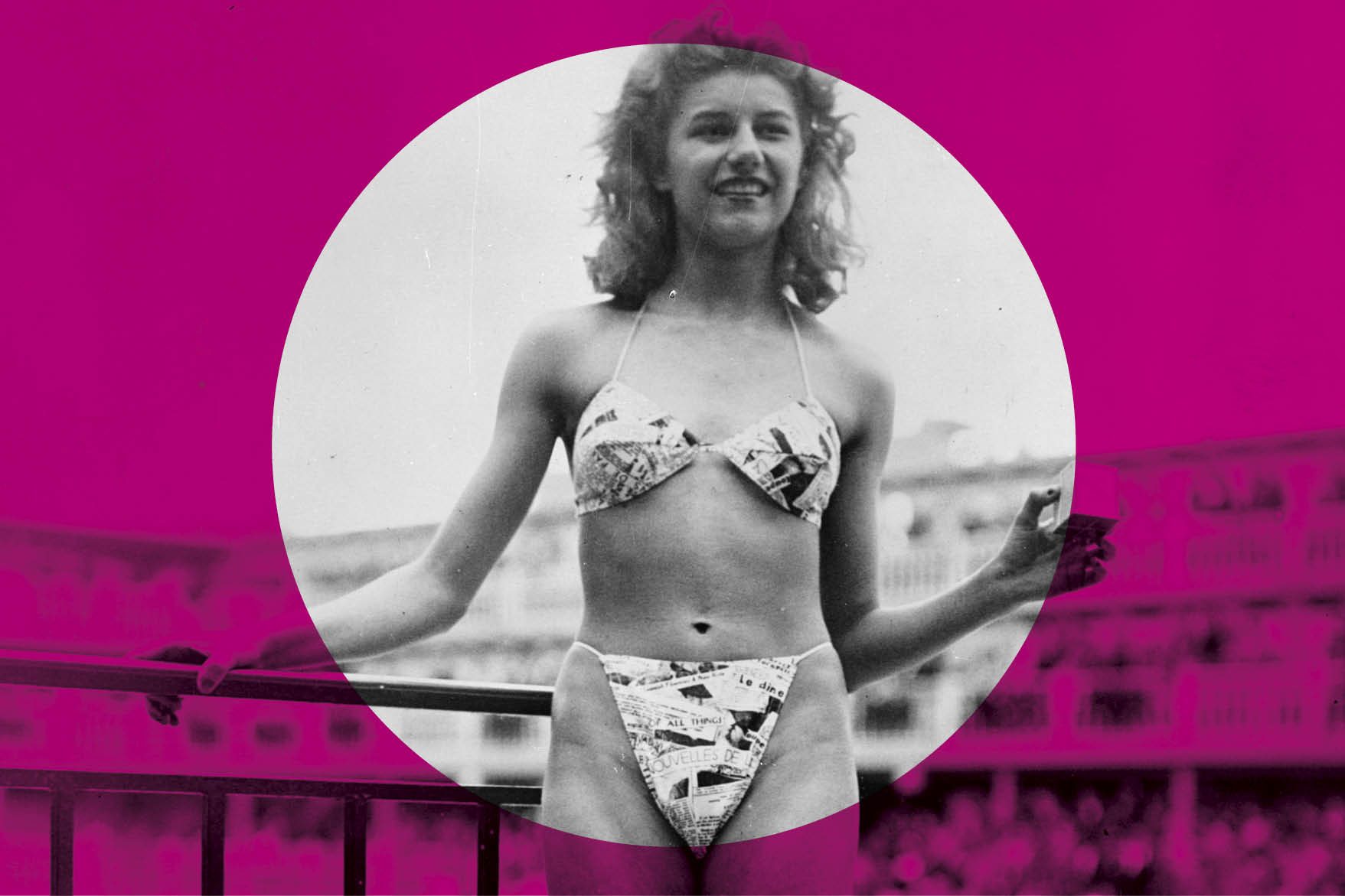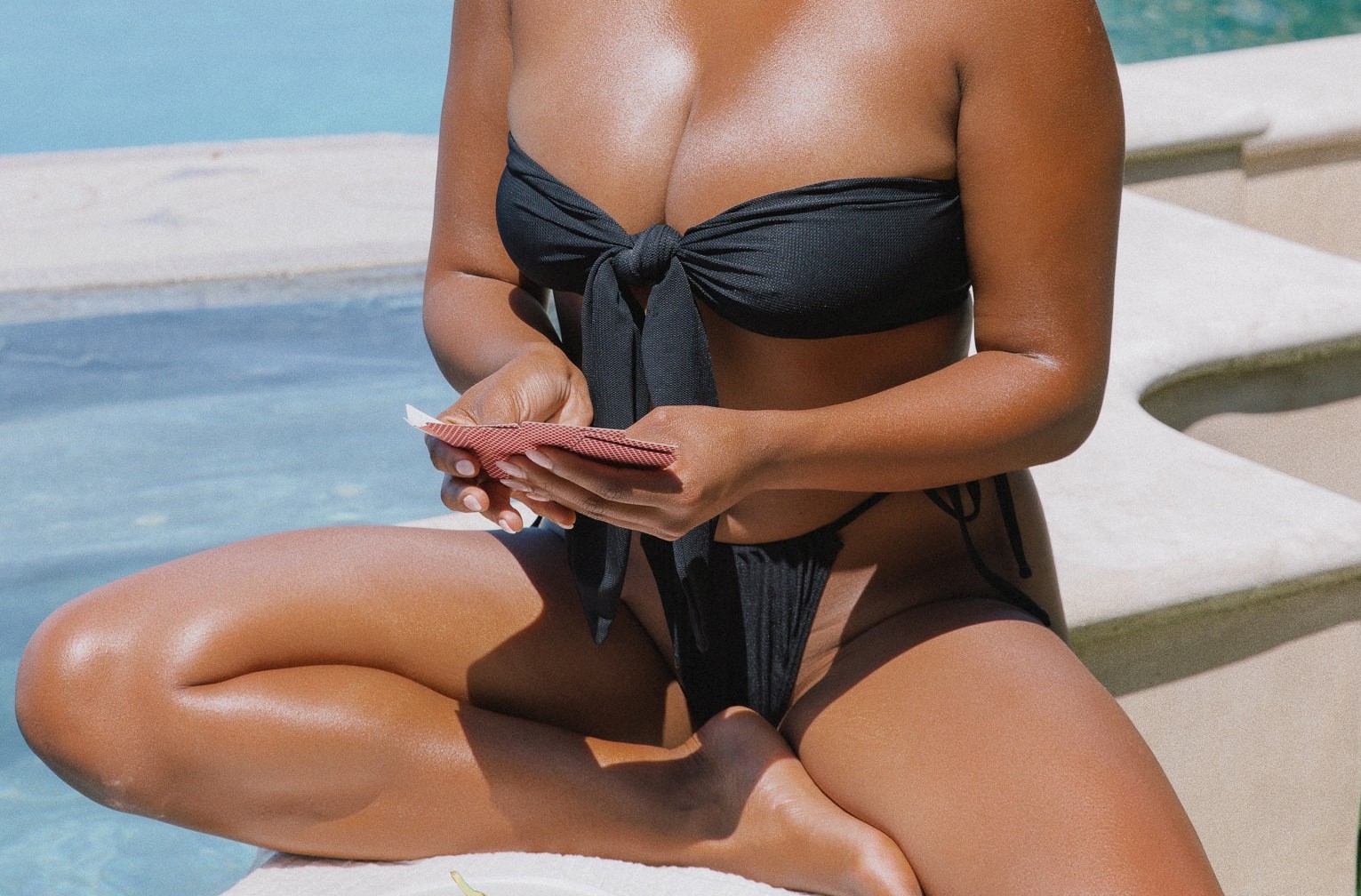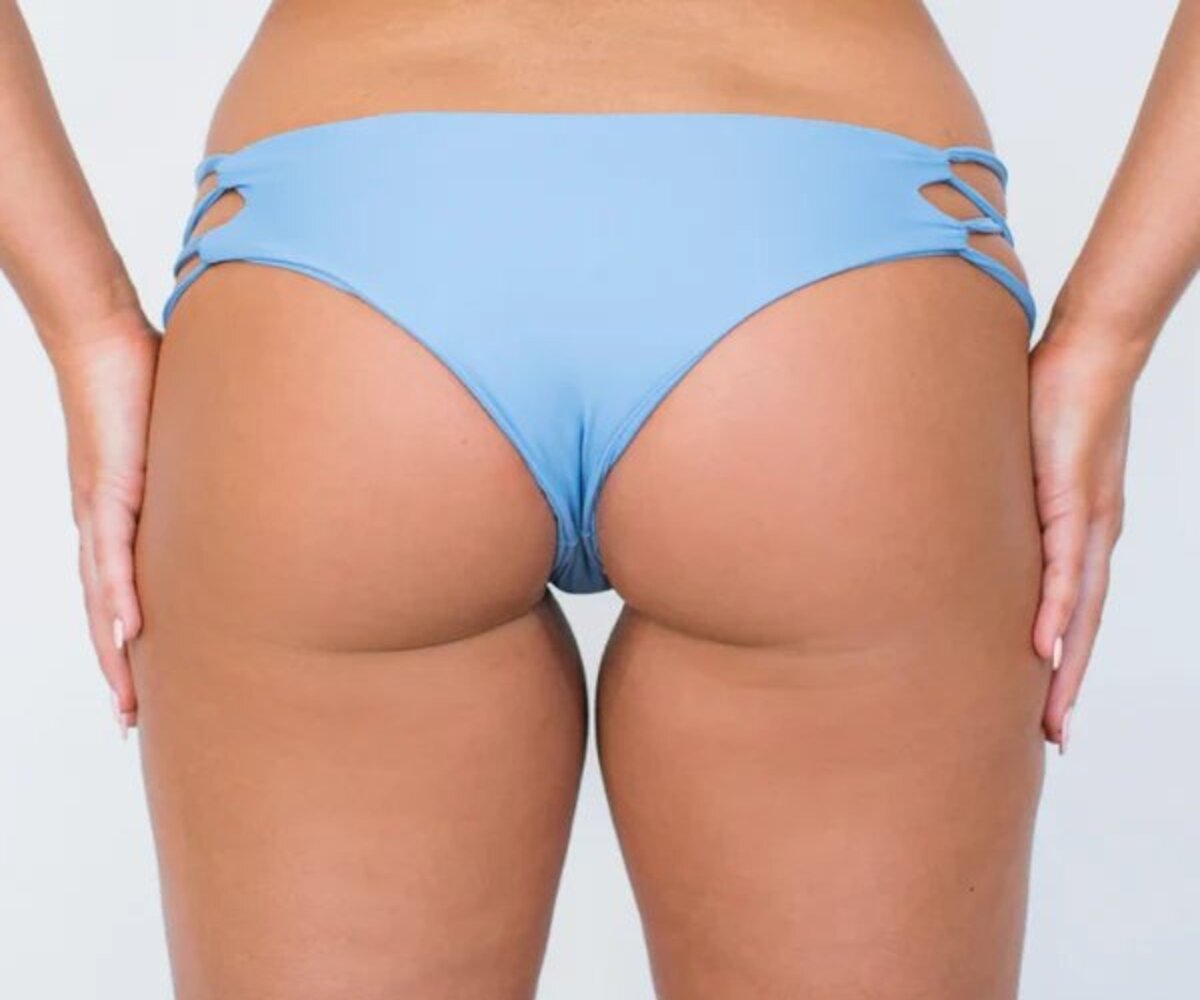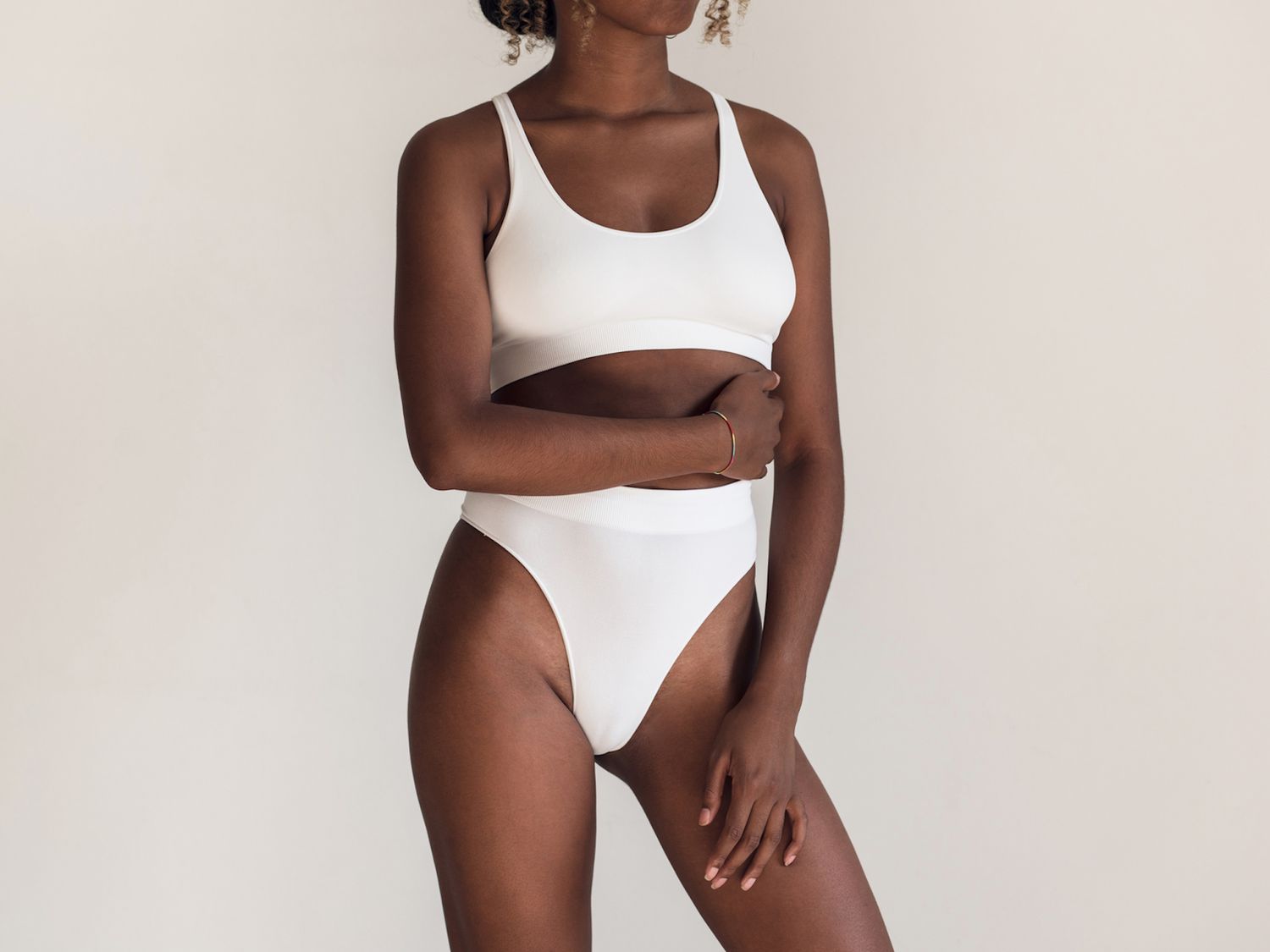Home>Women's Underwear>Bikinis>What Is Bikini Barista


Bikinis
What Is Bikini Barista
Modified: August 2, 2023
Discover what a bikini barista is and the allure of their stylish beachwear outfits. Dive into the world of bikinis and coffee culture.
(Many of the links in this article redirect to a specific reviewed product. Your purchase of these products through affiliate links helps to generate commission for Under-tec.com, at no extra cost. Learn more)
Table of Contents
Introduction
Welcome to the world of Bikini Baristas! A unique and controversial phenomenon that has gained significant attention over the years. These coffee stands, often located in the United States, employ baristas who serve coffee and other beverages while dressed in bikinis. It’s a concept that has attracted both admirers and critics, sparking debates and legal battles.
From the name itself, it’s clear that the primary feature of Bikini Baristas is the attire that the employees wear. The idea behind this dress code is to combine the enjoyment of a hot beverage with the allure of a bikini-clad barista. Customers can enjoy their favorite coffee with the added experience of interacting with an attractive employee. While it may seem like a harmless and fun concept to some, it has also been the subject of controversy and legal issues.
The history of Bikini Baristas can be traced back to the early 2000s, when the first stands appeared in Washington State. Since then, the trend has spread to other parts of America, gaining popularity among certain customer demographics. These establishments have become known for their unique concept and for offering a different experience compared to traditional coffee shops.
Working as a Bikini Barista requires a specific set of skills and qualities. Baristas must not only be skilled in making various coffee drinks but also possess excellent customer service abilities. They must be comfortable working in a bikini and be able to handle potentially lewd customer behaviors. The working conditions and requirements of being a Bikini Barista can vary depending on the specific stand and its policies.
However, the concept of Bikini Baristas has not been without its fair share of controversies. These establishments have faced criticism for objectifying women, promoting an unhealthy work environment, and perpetuating gender stereotypes. Additionally, there have been instances of illegal activities within some stands, prompting concerns about the safety and legality of the industry.
Legal issues and regulations surrounding Bikini Baristas vary from state to state and even within different cities. Some areas have implemented stricter regulations to address concerns related to obscenity or public decency, while others have allowed these establishments to operate within certain guidelines. The existence and legality of Bikini Baristas have sparked debates about the limits of free speech, individual rights, and societal standards.
Despite the controversies and legal battles, there are supporters of Bikini Baristas who argue for the autonomy of individuals to choose their own profession and attire. They believe that as long as the employees are of legal age and provide consent, they should be allowed to work in a Bikini Barista stand without interference from the government or moral judgment.
In this article, we will explore the world of Bikini Baristas, delving into their history, working conditions, legal issues, controversies, and public perceptions. Join us on this journey to gain a deeper understanding of this unique and polarizing concept.
Definition of Bikini Barista
A Bikini Barista can be defined as a coffee shop employee who serves hot beverages, usually coffee, while dressed in a bikini or similar revealing attire. The term “Bikini Barista” is a combination of the type of clothing worn, a bikini, and the occupation of a barista. These establishments have gained popularity in certain regions, especially in the United States, where customers can enjoy their favorite drinks while being served by attractive baristas dressed in skimpy outfits.
The main characteristic that distinguishes a Bikini Barista from a regular barista is the dress code. Unlike traditional coffee shops where employees typically wear uniforms or casual attire, Bikini Baristas choose to wear outfits that are more revealing. The purpose behind this dress code is to provide customers with an additional sensory experience beyond the taste and aroma of the beverages they consume. The concept aims to combine the enjoyment of a well-crafted coffee with the visual appeal of an attractive server.
Bikini Baristas usually work in small kiosks or stands, often located in parking lots or along busy streets. These stands are designed to be compact and provide a drive-thru service, allowing customers to conveniently get their coffee without leaving their vehicles. Some Bikini Barista establishments may also have limited outdoor seating areas for customers who prefer to enjoy their drinks on-site.
It is important to note that not all Bikini Baristas wear bikini bottoms. In some cases, the dress code may include lingerie, swimsuits, or other revealing outfits. The extent of the dress code can vary from stand to stand, with some places adopting more modest attire compared to others.
The intention behind the concept of Bikini Baristas is to provide a unique and visually appealing experience for customers. By combining the art of making quality beverages with the allure of beautiful and personable baristas, these establishments aim to attract a specific demographic of customers who appreciate both the drink and the ambiance. Some advocates argue that the dress code empowers individuals to embrace their bodies and exercise their freedom of personal expression.
However, critics argue that Bikini Baristas contribute to the objectification of women and perpetuate harmful gender stereotypes. They argue that such establishments create an environment that prioritizes the sexual appeal of the baristas over their skills as service providers, ultimately reducing their worth to their physical appearance. The controversy surrounding this concept has sparked debates about gender equality, workplace ethics, and societal norms.
Now that we have established the definition of a Bikini Barista, let us delve deeper into the history, working conditions, legal issues, and controversies surrounding this unique occupation.
History of Bikini Baristas
The origins of Bikini Baristas can be traced back to the early 2000s when the concept first emerged in Washington State, particularly in the city of Seattle. The idea of coffee stands employing baristas dressed in bikinis or revealing outfits quickly gained attention and popularity. The concept was novel and offered a unique twist to the traditional coffee shop experience.
It is believed that the first Bikini Barista stand in Washington State was established in 2003. The idea initially started as a way to differentiate coffee stands from their competitors and attract more customers. The combination of attractive baristas and the allure of a bikini-clad employee provided a new and exciting element for coffee lovers.
Word of these unconventional coffee stands spread quickly, and it wasn’t long before other entrepreneurs in the area recognized the business potential. Several Bikini Barista establishments opened up, each attempting to outdo one another with their unique concepts, catchy names, and appealing baristas. These stands became popular gathering spots for regular customers and curious visitors alike.
As the trend gained momentum, Bikini Barista stands began to open in other parts of the United States, particularly in states such as California, Oregon, and Arizona. However, it is important to note that not all communities were receptive to this concept. While some regions embraced the idea, others saw it as inappropriate or even offensive.
Over the years, the popularity and prevalence of Bikini Baristas continued to grow, with stands becoming more elaborate and sophisticated. Some establishments introduced themes and costumes, taking the concept beyond just bikinis. From superhero-inspired outfits to fantasy-themed attire, Bikini Baristas aimed to create a memorable experience for their customers beyond just a cup of coffee.
As Bikini Baristas became more prominent, they also attracted media attention and became the subject of documentaries and news features. While some coverage portrayed these stands positively, highlighting the entrepreneurial spirit and unique atmosphere they offered, others focused on the controversies and criticized the objectification of women.
Despite the controversies and debates surrounding Bikini Baristas, the concept remains a thriving industry in certain areas. Many customers continue to enjoy the combination of a delicious beverage and the visual appeal of attractive baristas. However, it is worth noting that the industry has faced challenges and legal battles regarding licensing, zoning regulations, and obscenity laws in some regions.
In the next sections, we will explore the working conditions, controversies, legal issues, and public perceptions surrounding Bikini Baristas. By doing so, we hope to provide a comprehensive understanding of this unique and polarizing phenomenon.
Working Conditions and Requirements
Working as a Bikini Barista comes with its own set of unique working conditions and requirements. While the specific conditions can vary from stand to stand, there are common elements that define the working environment for these baristas.
One of the defining aspects of being a Bikini Barista is the attire. Employees are required to wear bikinis or other revealing outfits, which can expose them to varying levels of discomfort and potential objectification. The choice to work in this industry requires individuals to be comfortable with their bodies and to handle potentially lewd or inappropriate customer behaviors.
The working conditions in Bikini Barista stands are typically fast-paced, especially during peak hours. Baristas must be able to multitask, handle cash transactions, and prepare multiple coffee orders simultaneously. The ability to adapt and work efficiently in a high-pressure environment is crucial.
Baristas must possess excellent customer service skills. Interacting with customers is a significant aspect of the job, and employees must be polite, friendly, and approachable. Providing exceptional customer experiences is vital for customer satisfaction and building a loyal customer base.
Regarding physical requirements, Bikini Baristas often need to be physically fit and presentable. The emphasis on physical appearance is inherent in the nature of these establishments. Baristas may be required to maintain certain standards of grooming and physical fitness to meet the expectations of customers.
In terms of availability, Bikini Baristas may have to work early mornings, evenings, weekends, and holidays. These establishments cater to customers throughout the day, and employees must be flexible with their schedules. Additionally, baristas may need to work in various weather conditions, as some stands have outdoor seating areas.
As with any profession, compensation and benefits can vary. Bikini Baristas may be paid an hourly wage with the potential for tips. The amount of tips can vary depending on factors such as location, customer generosity, and the quality of service provided.
It is important to note that the working conditions and requirements of being a Bikini Barista can be subject to debate and scrutiny. Critics argue that these conditions can contribute to an unhealthy work environment, objectification of women, and perpetuation of harmful gender stereotypes. The ongoing controversies regarding the industry have prompted discussions about the ethical considerations surrounding this occupation.
In the next sections, we will delve into the controversies, legal issues, and public opinion surrounding Bikini Baristas. By examining these aspects, we aim to provide a comprehensive understanding of the industry and the debates that surround it.
Controversies Surrounding Bikini Baristas
Bikini Baristas have been a subject of controversy and heated debates, sparking discussions around issues such as objectification, workplace ethics, and societal norms. While some individuals view the concept as harmless and a form of personal expression, others argue that it perpetuates harmful stereotypes and creates an environment that is conducive to exploitation.
One of the main controversies surrounding Bikini Baristas is the objectification of women. Critics argue that the emphasis on the baristas’ physical appearances and the dress code of revealing outfits reduces these individuals to objects of desire rather than valued service providers. This objectification can contribute to a male-dominated and gender-biased work environment, reinforcing harmful gender stereotypes and undermining efforts for gender equality.
Another concern raised is the potential for harassment and inappropriate behavior towards Bikini Baristas. The overtly sexualized atmosphere of these establishments can attract individuals who may view the baristas as objects of sexual gratification. Some employees have reported instances of unwanted advances, lewd comments, and even physical harassment from customers. These incidents highlight the challenges faced by baristas in maintaining their safety, well-being, and dignity in the workplace.
The controversy also extends to the impact on the perception of women in the larger society. Critics argue that the existence of Bikini Baristas can contribute to the normalization of the objectification of women, affecting how women are viewed and treated in society. This can perpetuate harmful societal dynamics and challenge the progress made in promoting gender equality and respect for all individuals.
Furthermore, concerns have been raised about the potential impact on minors who may come into contact with Bikini Baristas. Some stands are located in close proximity to schools or residential areas, raising questions about age-appropriate exposure to sexualized environments. This has prompted debates about the need for stricter regulations and zoning restrictions to protect children and maintain community standards.
As a result of these controversies, some communities and local governments have taken action to regulate or even shut down Bikini Barista establishments. Zoning restrictions, licensing requirements, and stricter dress codes have been enacted in certain areas to address concerns regarding public indecency, obscenity, and the impact on community values.
Despite the criticisms and controversies, there are individuals who support Bikini Baristas and argue in favor of an individual’s right to choose their profession and attire. Supporters believe that as long as the baristas are of legal age and provide consent, they should be allowed to work in a Bikini Barista stand without interference from the government or moral judgment.
Now that we have explored the controversies surrounding Bikini Baristas, let us move on to the legal issues and regulations that surround this industry.
Legal Issues and Regulations
The presence of Bikini Baristas has led to various legal issues and regulations in different jurisdictions. While there is no standardized approach to governing these establishments, local governments have implemented regulations to address concerns regarding obscenity, public indecency, and community values.
One of the main legal issues surrounding Bikini Baristas is the application of obscenity laws. The degree to which the dress code and behavior of the baristas push the boundaries of obscenity can vary. Some stands may adhere to stricter dress codes or guidelines to avoid potential legal consequences, while others may operate in a gray area or even face lawsuits or fines.
Local governments have also implemented zoning regulations to control the location of Bikini Barista stands. Some areas have restricted these establishments from operating near schools, churches, or residential areas to maintain community standards and protect the well-being of minors.
Another area of concern is the licensing and permitting requirements for Bikini Barista businesses. Depending on the jurisdiction, these establishments may need to obtain specific licenses or permits, similar to other food and beverage businesses. Compliance with health and safety regulations, sanitation standards, and workplace safety requirements may also be required.
Additionally, age restrictions and the employment of minors are subject to legal scrutiny. Some jurisdictions have placed limitations on the employment of individuals under a certain age in these establishments due to concerns about the exposure of minors to sexually explicit environments or potential exploitation.
Legal challenges to regulations governing Bikini Baristas have been ongoing. Some owners and operators have challenged zoning restrictions or dress code regulations on the grounds of freedom of speech and expression. Court rulings have varied depending on the jurisdiction, with some regulations upheld as valid exercises of local government authority, while others have been deemed overly restrictive or unconstitutional.
The evolving nature of legal issues and regulations surrounding Bikini Baristas demonstrates the ongoing debates and challenges faced by both the industry and local governments. Striking a balance between individual freedom, community standards, and the protection of vulnerable individuals remains a complex task.
In the next sections, we will explore the public opinion and debates surrounding Bikini Baristas, as well as the support that exists for these establishments. By delving into these aspects, we hope to provide a comprehensive understanding of the various perspectives on this controversial industry.
Public Opinion and Debates
The presence of Bikini Baristas has stirred up significant public opinion and sparked debates among various communities. The concept has polarized individuals, with opinions ranging from strong support to vehement opposition.
One of the main points of contention is the argument that Bikini Baristas empower women to embrace their bodies and exercise their freedom of personal expression. Supporters argue that these establishments provide job opportunities for individuals who choose to work in this industry voluntarily. They believe that as long as the baristas are of legal age and provide consent, they should be allowed to work in a Bikini Barista stand without interference.
On the other side of the debate, critics argue that Bikini Baristas contribute to the objectification of women and perpetuate harmful gender stereotypes. They contend that these establishments create an environment that prioritizes the sexual appeal of the baristas over their skills as service providers, ultimately reducing their worth to their physical appearance.
Public opinion on Bikini Baristas is influenced by various factors such as cultural and personal beliefs, social norms, and feminist perspectives. Some individuals view these establishments as harmless entertainment, appreciating the visual appeal and the unique experience they offer. Others, however, see them as demeaning and exploitative, believing that they contribute to the marginalization and dehumanization of women.
The controversy surrounding Bikini Baristas has prompted discussions on workplace ethics, gender equality, and the impact of sexual objectification in society. Supporters argue that as long as the employees are treated fairly, compensated properly, and provided a safe working environment, there is no inherent harm in the concept. They argue that it is the responsibility of individuals to make informed choices about their employment and that moral judgments should not interfere.
Opponents, however, question the notion of true choice in this context. They argue that societal and economic pressures may limit individuals’ options, pushing them into professions they may not want to be a part of. Additionally, there are concerns about the potential negative consequences on society as a whole, such as the reinforcement of harmful gender stereotypes and the perpetuation of a culture that objectifies women.
As the debates continue, local governments have grappled with finding a balance between protecting community values, preserving individual freedoms, and upholding legal standards. This ongoing discussion reflects the complex and multifaceted nature of the issues surrounding Bikini Baristas.
In the final section of this article, we will summarize the key points discussed and provide a comprehensive perspective on the world of Bikini Baristas.
Support for Bikini Baristas
Despite the controversies and debates surrounding Bikini Baristas, there are individuals and groups who support and advocate for their existence. These supporters argue for personal freedom, autonomy, and the right for individuals to choose their own profession and attire.
One of the key arguments made in support of Bikini Baristas is the concept of body positivity and self-expression. Supporters argue that these establishments provide a platform for baristas to embrace and celebrate their bodies. They believe that individuals should have the agency to express themselves in a way that aligns with their personal comfort and values, as long as they are of legal age and consent to their work environment.
Furthermore, proponents of Bikini Baristas argue against moral judgments or interference from the government. They contend that individuals should have the right to make their own choices regarding their profession, including working in an environment that may be considered controversial by some. Supporters believe that as long as the baristas are treated fairly, compensated properly, and provided a safe working environment, there should be no legal or moral restrictions on their employment.
Supporters also highlight the economic benefits that Bikini Barista stands bring to local communities. These establishments can generate revenue, create job opportunities, and contribute to the local economy. These economic factors are seen as positives for both the baristas and the communities in which they operate.
Additionally, supporters argue that the controversy surrounding Bikini Baristas stems from societal discomfort with sex and sexuality. They believe that a healthy and consensual approach to sexuality should be embraced, rather than stigmatized or suppressed. By offering a space where individuals can explore and express their sexuality in a consensual and safe manner, they argue that Bikini Baristas can be viewed as a positive aspect of society.
It is important to note that supporters of Bikini Baristas also acknowledge the need for ensuring the safety and well-being of the employees. They believe that proper regulations and measures should be in place to address concerns such as harassment and provide a healthy work environment for all individuals working in the industry.
While the support for Bikini Baristas exists, it is essential to recognize that public opinion on this subject remains diverse and can be influenced by personal values, cultural beliefs, and lived experiences. The ongoing debates and discussions surrounding these establishments illustrate the complex nature of the issues at hand.
Now that we have explored both sides of the argument, let’s conclude with a summary of the key points discussed and provide a comprehensive perspective on the world of Bikini Baristas.
Conclusion
The world of Bikini Baristas is a fascinating and controversial one. These unique coffee stands, where baristas serve customers while dressed in revealing attire, have sparked debates and raised important questions about objectification, gender stereotypes, and personal freedoms.
Throughout this article, we have explored the history of Bikini Baristas, their working conditions and requirements, as well as the controversies, legal issues, and public opinion surrounding them. The concept of Bikini Baristas has faced criticism for objectifying women and perpetuating harmful gender stereotypes, while also garnering support from those who argue for personal freedom and the right to choose one’s own profession and attire.
The controversy surrounding Bikini Baristas has led to various legal battles and regulatory measures by local governments, aiming to address concerns about obscenity, public indecency, and community standards. However, the industry continues to operate, albeit with differing restrictions and guidelines depending on the jurisdiction.
As with any polarizing topic, public opinion on Bikini Baristas varies. Some individuals view these establishments as a form of personal expression and body positivity, while others see them as contributing to the objectification of women and the perpetuation of harmful societal norms. The ongoing debates reflect the complex and multifaceted nature of the issue at hand.
It is important to weigh the arguments on both sides, considering factors such as personal autonomy, workplace ethics, and the relationships between sex, sexuality, and societal norms. Balancing individual freedoms, community values, and the well-being of individuals working in the industry poses significant challenges.
While the controversies surrounding Bikini Baristas persist, it is crucial to approach the subject with empathy, open-mindedness, and the willingness to engage in constructive discussions. By fostering a dialogue that respects diverse perspectives, we can continue to navigate the complexities and address the ethical considerations involved in this unique occupation.
Ultimately, the future of Bikini Baristas remains uncertain, with debates and legal battles ongoing. As society continues to evolve and engage in important conversations surrounding gender equality and workplace ethics, it is our collective responsibility to ensure a respectful and inclusive environment for all individuals involved.
